The Edgar Broughton Band, founded in 1968 in Warwick, England, was an English psychedelic rock group.

Whale Music is a 1992 studio album by Canadian rock band Rheostatics. It should not be confused with the soundtrack to the film Whale Music, which was also composed by the band and released in 1994.

Writer is the debut studio album by Carole King and was released in 1970. King already had a successful career as a songwriter, and been a part of The City, a short-lived group she formed after moving to Los Angeles in 1968. Tracks on the album include "Up on the Roof" which was a number 4 hit for the Drifters in 1962, and "Child of Mine", which has been recorded by Billy Joe Royal, among others. The album did not receive much attention upon its release, though it entered the chart following the success of King's next album, Tapestry, in 1971.
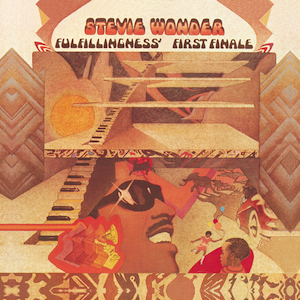
Fulfillingness' First Finale is a 1974 album by Stevie Wonder; widely considered one of the albums from his "classic period". Released on July 22, 1974, on the Tamla label, it is Wonder's nineteenth album overall, and seventeenth studio album.

Cyclone is the eleventh major release and eighth studio album by Tangerine Dream and the first in their canon to feature proper vocals and lyrics. The cover is a painting by band leader Edgar Froese.
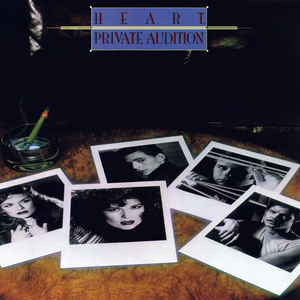
Private Audition is the sixth studio album by American rock band Heart. It was released on June 5, 1982, by Epic Records. The album reached number 25 on the US Billboard 200, spending 14 weeks on the chart. It spawned the single "This Man Is Mine". It is the last Heart album to feature longtime members Mike Derosier and Steve Fossen, who left after the recording of the album and were replaced by Denny Carmassi and Mark Andes.
Skylark was a former Canadian pop/rock band, active during 1971–1973, based in Vancouver, BC.

The soundtrack to the film Suspiria was composed and performed by the Italian band Goblin. A single version of the title track, "Suspiria", was released with the B-side "Blind Concert".
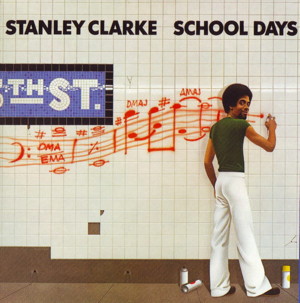
School Days is the fourth solo album by jazz fusion bassist Stanley Clarke. The album reached number 34 in the Billboard 200 chart and number 2 in the Jazz Albums chart.

I Can See Your House from Here is the seventh studio album by English progressive rock band Camel. Released in 1979, a new line up was introduced with founding members Andrew Latimer (guitar) and Andy Ward (drums) joined by bassist Colin Bass and keyboardists Jan Schelhaas and Kit Watkins who replaced Dave Sinclair. At one point, the album was going to be called Endangered Species.
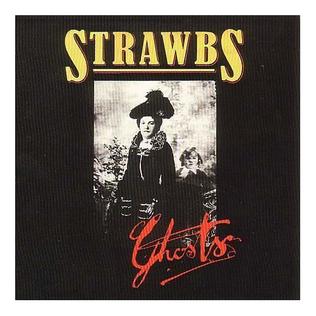
Ghosts is the 7th studio album by English band Strawbs.

Dreamlab is an album by the German band Mythos. It was released in 1975 on the Kosmische Musik label and featured a new line-up of the band.
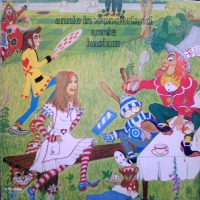
Annie in Wonderland is the first solo album by Annie Haslam, vocalist with the 1970s band Renaissance. It was produced by Roy Wood, who also wrote some of the material, arranged all the songs, played nearly all of the instruments, and illustrated the cover. The album features a range of musical styles enabling Haslam to experiment with vocal styles outside the ethos of Renaissance. The range for which Haslam is well-known is still apparent, however, especially in the showcase number "Rockalise". The album peaked at No. 167 on the Billboard "pop albums" chart.
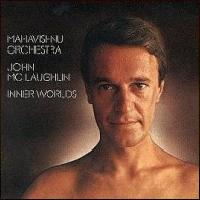
Inner Worlds is an album by the Mahavishnu Orchestra. It was the group's sixth album release.
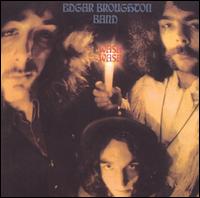
Wasa Wasa is the debut album by the psychedelic rock band Edgar Broughton Band. The album was originally released as "Harvest SHVL 757" in July 1969 and was produced by Peter Jenner. The 2004 CD reissue contained 5 previously unreleased bonus tracks, 4 of them being demos recorded by the band when they were a blues outfit called "The Edgar Broughton Blues Band". These tracks feature guitarist Victor Unitt, who left the band when they started to go into psychedelic rock, stating the members of the band to be "sell-outs". The last bonus track being a jamming session which was recorded on 21 January 1969, which was discovered when remastering the album.

Sing Brother Sing is the second album by English psychedelic rock band, Edgar Broughton Band. It was originally released as "Harvest SHVL 772" in June 1970. The 2004 CD reissue contains 8 bonus tracks.

Edgar Broughton Band is the self-titled third album by the Edgar Broughton Band. The album is known amongst fans as "The Meat Album", as the album cover features meat on hangers in a warehouse; a human can also be seen hanging amongst the meat. The 2004 CD reissue features three bonus tracks. Several outside musicians were used on this album including Mike Oldfield of Tubular Bells fame.
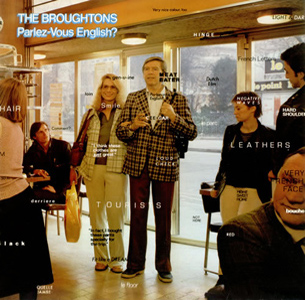
Parlez-Vous English? is the seventh album by psychedelic rock group, The Edgar Broughton Band, or "The Broughtons" as they are credited on this release. The album was created after serious legal action, which occurred during the release of their previous album Bandages, this resulted with the band splitting up for four years before finally reuniting under a different moniker, "The Broughtons". The album was originally released as Infinity INS 3027 in 1979, and saw the band on new label, Infinity Records and with a more punk/rock sound, as opposed to their other psychedelic rock releases. The album was remastered in 2006.
Open Fire was the first instrumental album from Ronnie Montrose which explored jazz, rock and acoustic concepts in the vein of Blow by Blow by Jeff Beck. Ronnie dropped hints in previous Montrose albums that he was heading in this direction. Songs like "Whaler" and "One And a Half" from Warner Brothers Presents... Montrose! and "Tuft-Sedge" and "Merry-Go-Round" from Jump On It contained various acoustic, synthesizer and string elements that showed Ronnie was looking to branch out from his hard rock persona.

Straight Songs of Sorrow is the twelfth studio album by American singer Mark Lanegan. It was released through Heavenly Recordings on May 8, 2020. The album was inspired by writing his memoir Sing Backwards and Weep, which was published April 28, 2020. It's his first solo album credited to simply Mark Lanegan, as opposed to Mark Lanegan Band, since 2013's Imitations and the first one credited to Mark Lanegan that doesn't feature former collaborator Mike Johnson.

















